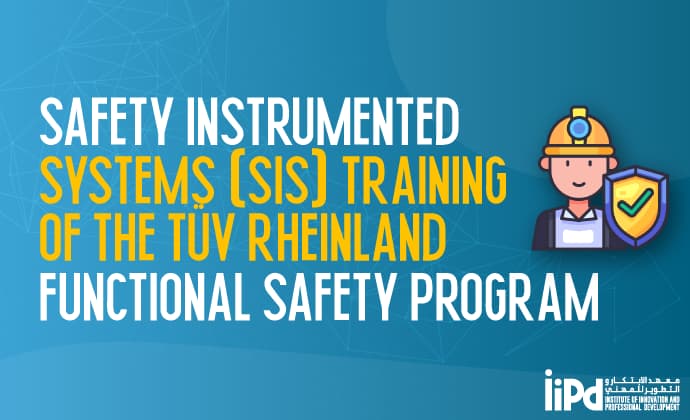
Course Details
International standards as IEC 61508 and IEC 61511 require your ability to demonstrate competency for all steps of the Safety Lifecycle, where you are involved.
HIMA is an accepted course provider of the TÜV Rheinland Functional Safety Program. This training will provide you with valuable skills and knowledge that you can use in your daily activities.
The course has been developed to provide an overview of industry standards, functional safety concepts, and tools used to determine safety integrity levels (SIL), while applying industry-recognized techniques and methodologies.
Participant requirements
- A minimum of 3 years of experience in the field of Functional Safety
- University degree or equivalent engineer-level responsibilities status as certified by employer
Certificate
The successful completion of the final exam will provide you with a “FS Engineer (TÜV Rheinland)” certificate.
Acquiring your certificate through a HIMA training course, will let you benefit from the Functional Safety competence of a world leader in safety-related automation solutions.
- Duration: 3.5 Days
- Location: Dubai, UAE & Riyadh, K.S.A
At the end of this training, you will be able to:
- Introduction to Functional Safety, standards, basic terms, and definitions
- Functional Safety Management (Safety Lifecycle, competence, independence, verification, validation, modification, ...)
- Hazard & Risk Analysis
- Safety Requirement Specification (SRS)
- Safety Instrumented Systems (SIS) hardware design (SFF, HFT, architectures, choice of equipment, prior use, certified modules, PFDavg
- Software design (specification, design, testing, …)
- SIS Security
- Operation and Maintenance (repair, proof test, bypasses, …)
Course Content
Below is the course content, which includes a detailed outline of topics and materials covered in the course. Explore and enhance your knowledge!
Module 1 – Introduction to Functional Safety
1.1 Accidents in the Process Industry Sector
1.2 International Safety Standards
1.3 Local Laws and Regulations
1.4 Basic Terms and Definitions
Module 2 – Functional Safety Management (FSM)
2.1 FSM Basics
2.2 Safety Life-Cycle and Safety Plan
2.3 Verification and Validation
2.4 Assessment and Audit
2.5 Independency
2.6 Modification
2.7 Documentation
2.8 Responsibilities & Competency
Module 3 – Hazard & Risk Assessment
3.1 Basic Terms and Definitions
3.2 Hazard Identification
3.3 Hazard Analysis
3.4 Risk Reduction
Module 4 – Safety Requirements Specification (SRS)
4.1 SRS Basics
4.2 SRS Content
4.3 SRS Review and Verification
Module 5 – SIS Hardware Design
5.1 SIS Design Objectives
5.2 Basic Terms and Definitions
5.3 Basic SIS Design – Hardware Concepts
5.4 Requirements for the Selection of Devices
5.5 Quantification of Random Failures – Reliability Analysis
5.6 SIL Verification
Module 6 – SIS Application Program (AP)
6.1 Basics
6.2 Application Program Safety Requirements Specification 6.3 Application Program Design
6.4 Application Program Implementation, Methods & Tools
6.5 Application Program Review and Testing
6.6 Application Program Safety Validation Planning
6.7 Application Program Modification
Module 7 – SIS Security
7.1 Basics
7.2 SIS Security – Design
7.3 Basic Cyber Security Principles by “Viega and McGraw”
7.4 Maintenance/Engineering Interface Security
Module 8 – Operation and Maintenance (O&M)
8.1 Objectives
8.2 Procedures
8.3 Training
8.4 Bypass and Maintenance Override
8.5 Repair and Spare Parts
8.6 Proof Test Execution
8.7 Proof Test Examples
8.8 Inspection 8.9 Maintenance
Module 9 – Local Laws and Regulations
If you're working in Functional Safety, this training in Riyadh is a solid investment. In just 3.5 days, you’ll gain practical skills, learn from real experts, and walk away with a TÜV Rheinland certificate that’s respected around the world. It’s everything you need to grow your expertise and add real value to your work.








